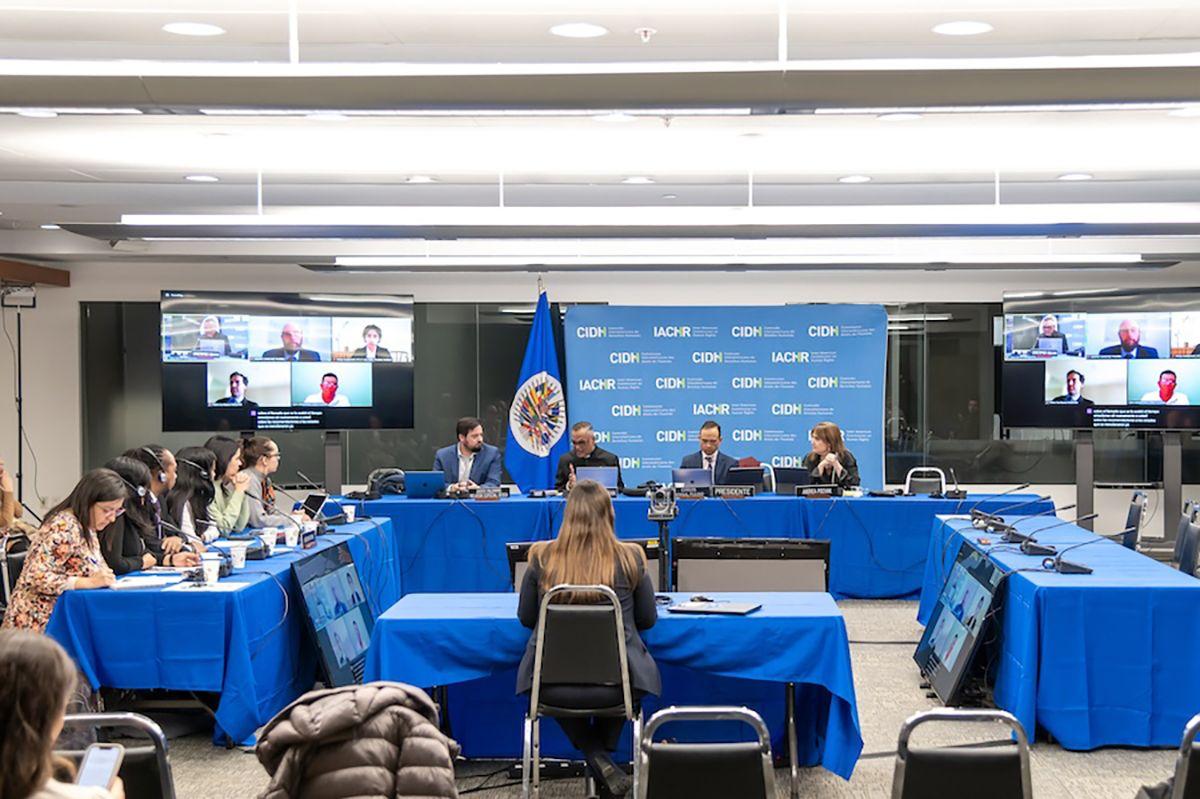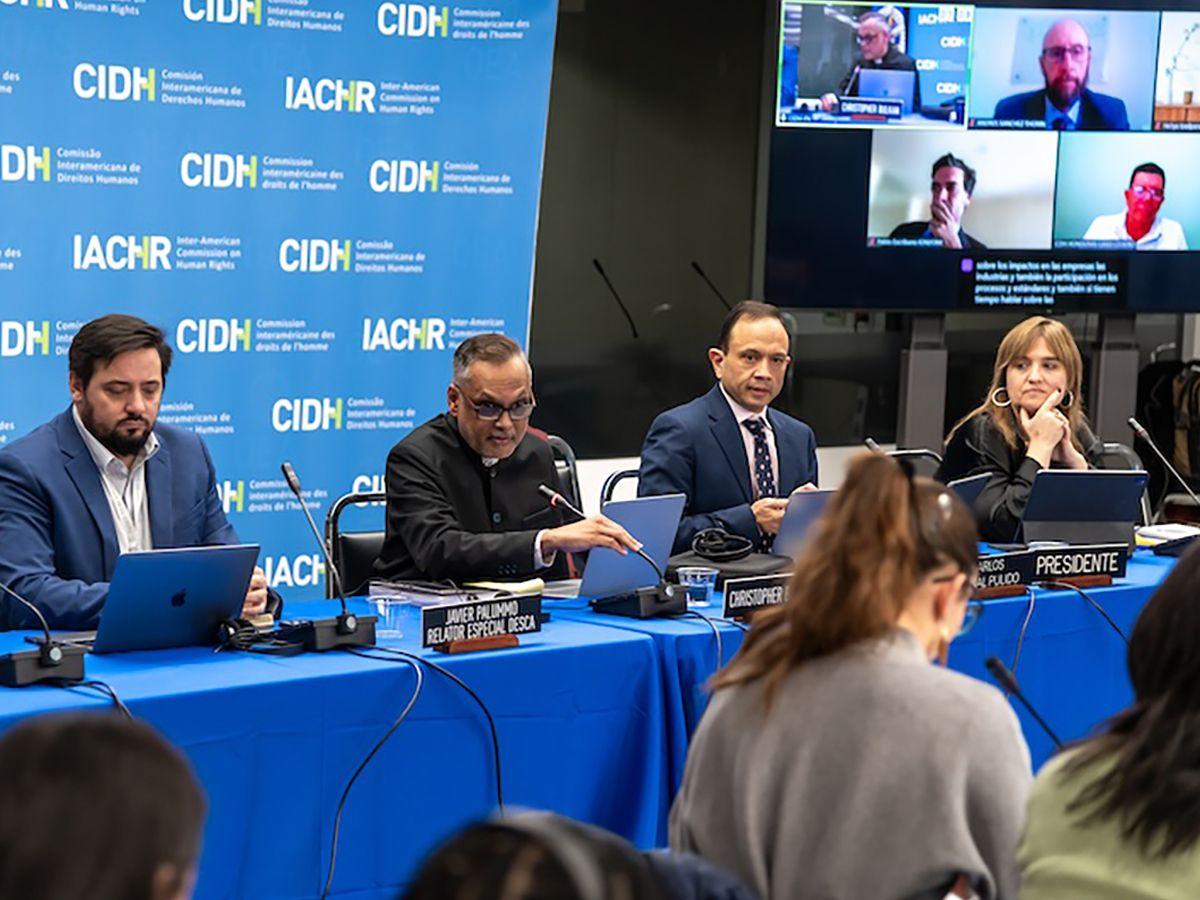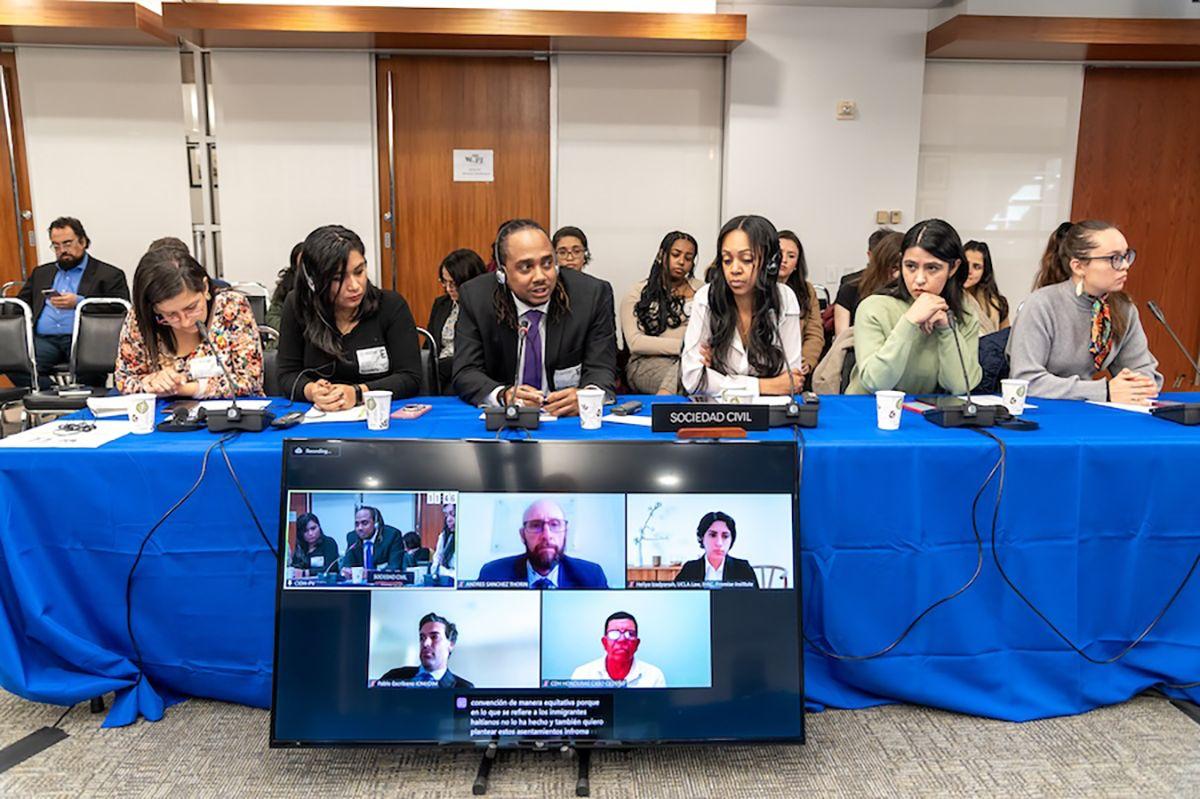Civil society organizations and migrants presented testimonies and evidence to the Inter-American Commission on Human Rights (IACHR) about the displacements generated by the climate crisis in Latin America. This is the first hearing of this body on the matter.
Guadalupe Mayoral from the fishing community El Bosque, in Tabasco, confirmed how rising sea levels destroyed her home starting in 2019, when a storm surge swept through the first line of houses in the town, including that of her grandfather.
“From then on, we worried because we didn't know what was going on. We knew that the sea had risen in level, but we thought it was going to return to its limit, from the Mexican authorities we only received silence... It was very hard to accept that there was no going back and that our community was going to disappear,” he said.
On December 25, 2022, the sea swallowed up the third line of houses in the community. On that occasion, elementary school, preschool and two churches were also affected.
“Climate change does not wait for political times, on the contrary, it is progressing mercilessly. With these last shocks came chaos, children without homes, without schools, walls falling and the hopelessness of having nowhere to go. A community that a few years before exported tons of fish, whose houses had a solid floor and a future now survived on sheet roofs. My dad and other men improvised houses, which I wouldn't call houses, because they don't have floors, electricity, water, they only serve to cover themselves from the sun and sometimes from the rain,” he said.
A year after fighting for the authorities' attention, today the community knows it will be relocated. There is land and some families have already signed agreements to receive houses, but others were excluded from the register drawn up by the Secretariat of Agrarian, Territorial and Urban Development, he regretted.
“We need El Bosque to be a lesson in the effects of Climate Change, because as my mother says we are the first to lose everything, but we won't be the last,” he said.
The session also included testimony from Louby Georges, of the Hemispheric Network for Haitian Migrants' Rights, a coalition of leaders from that country spread across 12 nations.
During the 14th hearing of the 189th session of the Commission, Georges narrated the effects of Hurricane Dorian on the Haitian community living in the Bahamas.
“One area had the largest Haitian community in the Bahamas, the discrimination and stigmatization that they suffer there made them the face of the effects of Dorian, they were afraid of being deported and it turns out that they had good reason to have one, in the months after the hurricane the government (of the Bahamas) deported thousands of Haitians. Instead of supporting our community to recover, the government is ending the work of the hurricane,” he accused of what is happening in these settlements.
Vulnerability in Latin America
During the hearing, it became clear that Latin America and the Caribbean suffer from climate vulnerability and the migratory consequences that this generates.
“Latin America and the Caribbean are regions, in particular, affected by the impacts of environmental and climate change. For example, in Central America, the dry corridor has impacted livelihoods, in the Caribbean, hurricanes continue to drive migration, rising sea levels continue to threaten entire communities to move, while glaciers in South America have been retreating in recent decades,” said Andrés Sánchez Thorin, deputy representative of the Regional Office of the United Nations High Commissioner for Human Rights for America.
In addition, Ángeles Cruz, research coordinator of the civil organization Racism MX, stated that mobilization for climate reasons reveals the conditions of inequality that afflict countries in the region.
“Climate displacement is a matter of racial justice, climate change and its effects are not neutral events that are alien to inequalities, on the contrary, they are embedded in historic colonial relations between the globalizing North and South. Countries in the global north emit 90% of GHGs. And according to Oxfam, 1% of the planet emits twice as much carbon as the poorest 50% in the world,” Cruz said.

Supplemental protection
The displacement generated by climate change is a transnational issue.
In this framework, Pablo Escribano, Regional Thematic Specialist of the International Organization for Migration (IOM) on migration, environment and climate change, highlighted the need for comprehensive protection that provides complementary protection, which translates into effective measures such as: humanitarian visas, temporary protection measures, temporary residence authorizations and the right to request asylum.
In this regard, Gabriela Oviedo of the Center for Justice and International Law (CEJIL) emphasized that more attention must be given to how these rights are guaranteed.
“We want to note the need to deepen how rights are interpreted, not only to say we have the rights of complementary protection, which has already been said by the IACHR, but to verify how complementary protection should be given, under what criteria,” he said.
Complementary protection in many cases discriminates against nationalities and in others it has temporary periods of a year or two, Oviedo said, so he does not consider them functional for the protection of the rights of people who cannot return to their communities.
“The same is true for other rights, we see communities that are being relocated, there is no in-depth analysis of how the right to consultation with indigenous communities applies to communities that are internally displaced, there is no in-depth analysis of how the right to participation should be applied by women, boys and girls; it is the opportunity to have complex analyses observing the interconnection of rights,” he explained.
In addition to the importance of international instruments, Thorin stressed the need for adequate climate finance, specific development aid for migrants, and national and multilateral programs.
“For climate action to be effective, it is essential that human rights are respected, such as the meaningful and effective participation of rights holders, the free, prior and informed consent of indigenous peoples, access to independent complaint mechanisms and access to justice for the injured. These rights must be reflected in climate finance mechanisms such as the new Loss and Damage Fund and the launch of carbon markets,” said Sánchez Thorin.
Position of the IACHR

Commissioner Carlos Bernal urged the member States of the IACHR to review the issues addressed at the hearing, since the problems are structural and regional.
“Cooperation is needed from all States, especially those that emit the most greenhouse gases, and a real commitment to take joint measures, it is not enough just to approach a single State, but everyone has to be involved,” he said.
On a second point, he said that the videos and arguments presented at the hearing show the urgency of carrying out energy transition processes in the region, as a way to mitigate and reverse climate change.
Finally, he argued that mitigation measures must take into account the rights of migrants. And to understand that climate change generates migration processes, which requires the support of international organizations and countries in the region.



Comentarios (0)